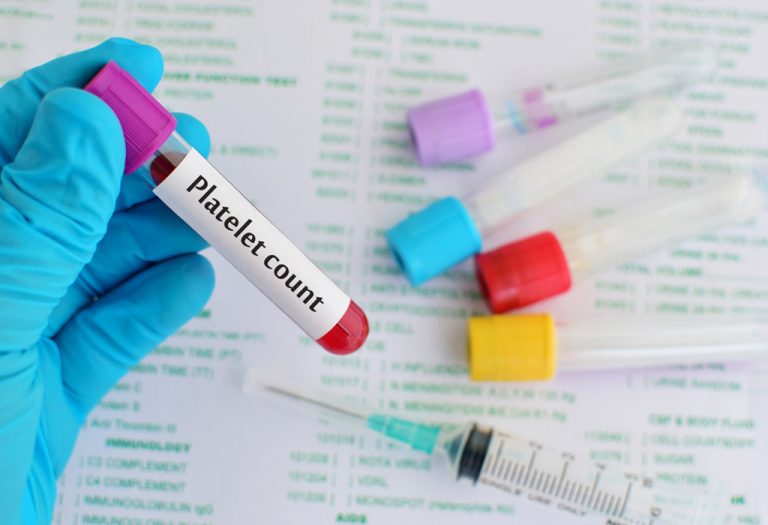Heparin During Pregnancy – Is It Safe to Use?

Heparin is an anticoagulant commonly used to prevent blood clots, particularly before surgeries. The use of heparin during pregnancy has been prevalent for quite some time. However, there is ongoing debate among medical experts regarding the safety and effectiveness of heparin in pregnancy. While it is generally considered safe for pregnant women, especially when used in the right circumstances, there are important factors to assess, such as the type of heparin, the dosage, and the underlying health condition of the expectant mother. Keep reading to know whether the use of heparin during pregnancy is safe or not.
What Is Heparin and Why Is It Recommended During Pregnancy?
Heparin, medically known as Unfractionated Heparin (UFH), is an anticoagulant which is used to stop blood clotting. It is used to treat several medical conditions, including blood vessels, heart, and lung conditions, and to prevent blood clotting in patients who need to take bed rest for a long time. During pregnancy, heparin is prescribed to avoid potential blood clots, and also to deal with the critical complications arising due to blood clottings, such as preeclampsia, low birth weight, disruption of the placenta, and loss of the foetus (2).
There is another kind of heparin, which has been recently recommended by doctors to pregnant women and in general to stop blood clots. It is known as Low Molecular Weight Heparin (LMWH) (4).
Is It Safe to Use Heparin During Pregnancy?
In general, the risk associated with the use of low molecular weight heparin during pregnancy is very low or negligible to both the mother and baby. However, the use of other blood thinners such as Warfarin and Unfractionated Heparin (the type that was previously used) may pose a threat to the health of the mother as well as the baby. Although, the low molecular weight heparin is considered safe to use with regards to pregnancy, the Unfractionated Heparin version used before had several health risks associated with it. Therefore, precaution should be taken before using any blood thinners, especially if you are pregnant (4).
Which Pregnant Women Benefit Most From Heparin During Pregnancy?
Women who are aware of their blood clotting problems are recommended to check with their doctors first and start the medication as prescribed. There have been several cases of miscarriage or child loss because effective steps were not taken at the right time to manage blood clotting issues. LMWH (Low Molecular Weight Heparin) is mostly recommended because it never crosses the placenta, and therefore no side effects are caused to the child. Women are also advised to take LMWH after the baby’s birth as the risk of blood clots are high during the first six weeks post-birth. It is also deemed safe for women to breastfeed when they’re on LMWH injections (5).
Pregnancy Complications Caused by Heparin
While LMWH has the least cases of side effects during pregnancy, there have been cases where complications have been caused due to Unfractionated Heparin. Some of the most common heparin side effects during pregnancy include:
- There have been cases of blindness and deafness in the infants due to improper heparin dosage and administration.
- It has been found that complications with regard to CNS (Central Nervous System) are caused in the foetus. In extreme conditions, death has also been recorded.
- It is also found that the rate of spontaneous abortion and miscarriage is increased in women taking Unfractionated Heparin.
- It also induces Thrombocytopenia (low platelet count) in the mothers. This condition is not that serious and is reversible through treatment (3).
- In rare conditions, the mother might also suffer from alopecia and osteoporosis (3).
How Effective Is Heparin During Pregnancy?
Heparin injection during pregnancy is usually administered to control blood clotting. Some women might already be taking the injections, and some might begin during their term of pregnancy. Since LMWH does not cross the placenta, experts recommend it as it causes no side effects to the foetus (4). Also, heparin is usually administered around the abdomen area where the fatty layers of the stomach do not permit the needle to get close to the foetus and harm it. As the risk of losing blood is high during and post-pregnancy stages, heparin is considered largely effective in stopping blood clots.
FAQs
1. Does heparin affect the baby?
Heparin does not cross the placenta, meaning it does not directly affect the baby. However, excessive use can lead to maternal side effects, which could indirectly affect fetal health. Doctors carefully monitor the dosage to ensure safety (1).
2. How long should a pregnant woman take heparin?
The duration of heparin treatment depends on the underlying condition and the individual’s health. It is typically used throughout pregnancy and may continue for a period after childbirth, especially if the woman has a history of blood clots.
3. What should I do if I miss a dose of heparin while pregnant?
If a dose is missed, it’s important to contact your doctor for advice. In most cases, they will recommend taking the dose as soon as possible, but skipping or doubling up without consultation can lead to complications.
There have been studies which conclude that usage of heparin, in general, is harmful to both the child and the mother. Research supports this through various experiments conducted on animals and their results. However, all these adverse effects are caused due to Unfractionated Heparin and other blood thinners. The discovery of LMWH has indeed been a boon to many mothers suffering from blood clotting problems as blood clotting does pose a major threat during the period of pregnancy. Either way, before taking any steps, we advise you to have a thorough discussion with your doctor and only then proceed further.
References/Resources:
1. Ginsberg. J. S, Kowalchuk. G, Hirsh. J, et al.; Heparin therapy during pregnancy. Risks to the fetus and mother; PubMed; https://pubmed.ncbi.nlm.nih.gov/2802889/
2. Warnock. L. B, Huang. D; Heparin; National Library of Medicine; https://www.ncbi.nlm.nih.gov/books/NBK538247/
3. Oduah. E. I, Linhardt. R. J, Sharfstein. S. T; Heparin: Past, Present, and Future; PubMed Central; https://pmc.ncbi.nlm.nih.gov/articles/PMC5039491/
4. UNFRACTIONATED HEPARIN (UFH); National Blood Clot Alliance; https://www.stoptheclot.org/about-clots/blood-clot-treatment/unfractionated-heparin/
5. Many. A, Koren. G; Low-molecular-weight heparins during pregnancy; PubMed Central; https://pmc.ncbi.nlm.nih.gov/articles/PMC1472984/#
High BP in Pregnancy
MTHFR Pregnancy – What Is It?
DVT (Deep Vein Thrombosis) in Pregnancy
Blood Clot in the Uterus during Pregnancy
Was This Article Helpful?
Parenting is a huge responsibility, for you as a caregiver, but also for us as a parenting content platform. We understand that and take our responsibility of creating credible content seriously. FirstCry Parenting articles are written and published only after extensive research using factually sound references to deliver quality content that is accurate, validated by experts, and completely reliable. To understand how we go about creating content that is credible, read our editorial policy here.




































